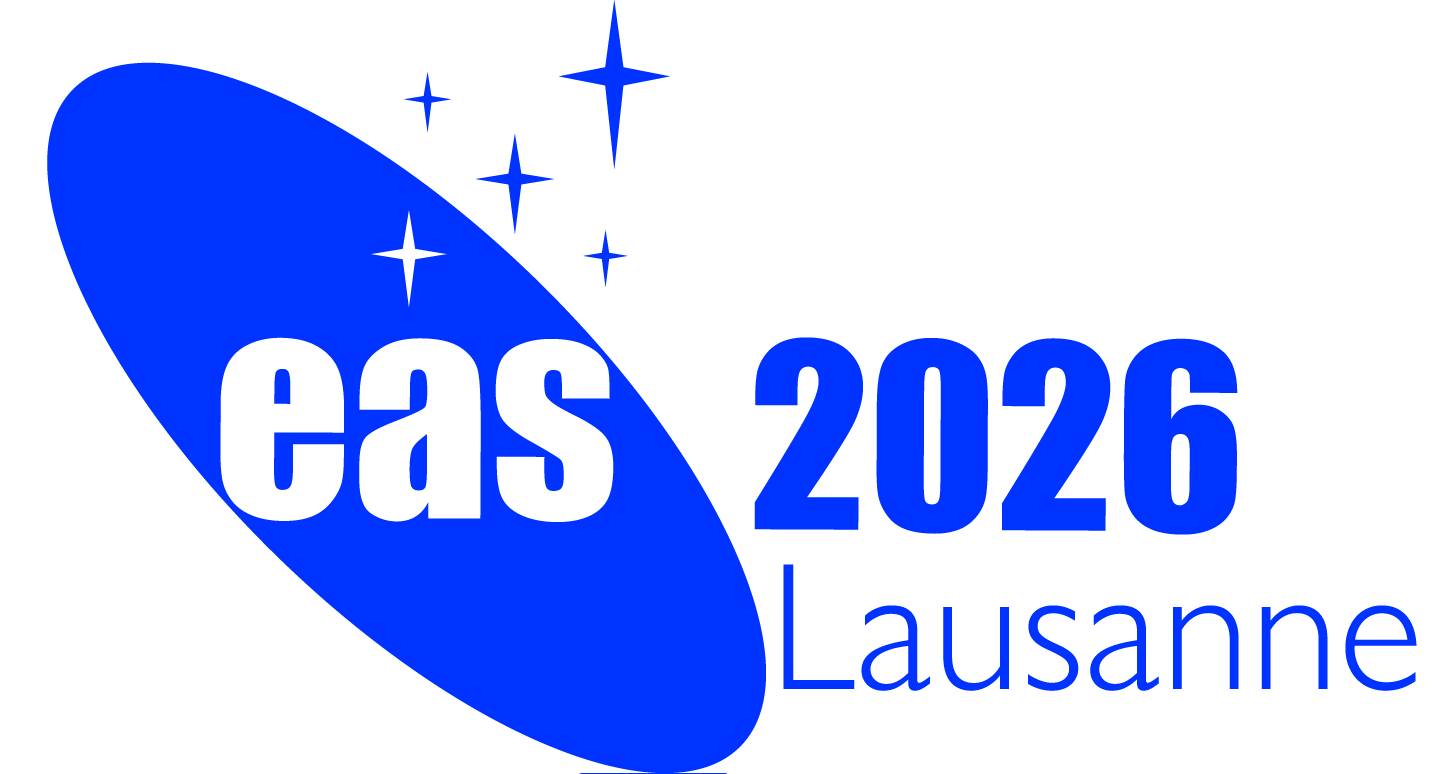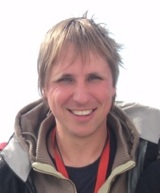
|
European Astronomical Society |

|
About EAS |
Activities
EAS Prizes/Fellows |
Service Centre |
I hope 2022 has started well for you all. Certainly the successful deployment of JWST to L2 has given a boost to us all and once again put astronomy in the forefront of the news. Congratulations to all those involved! The flawless precision of the Christmas-Day launch by Ariane resulted in much less propellent being used in the manoeuvres to reach L2 and the strong likelihood of a mission lifetime greatly exceeding that planned. European scientists and engineers have played a major role in the project, especially in the scientific instruments. They all deserve our congratulations and we look forward in the hope that the accomplishments of an excellent first month lead smoothly on to the start of scientific operation.
▸ Read more
I am very much looking forward to meeting with many of you again at our Annual Meeting in Valencia from 27 June to 1 July 2022. We are all enormously grateful to the Leiden team who, not once, but twice, stepped up to host the Annual Meeting virtually. They did a terrific job and many of the lessons we learned through that experience will be carried into the future, however the freedom to interact face-to-face with colleagues and friends has been much missed and I look forward to
renewing those interactions with you in the historic city of Valencia. Registration is now open, as is the opportunity to apply for fee waivers and travel grants.
Your Council has been busy across a broad canvas of topics. We have signed the United Nations Climate Neutral Now pledge. EAS itself has quite a small impact as it has a very small staff but of course we organise the largest astronomical conference in Europe. We are in the process of establishing baseline for the emissions generated by the Annual Meeting and start implementing ways to begin the reduction of CO2 emissions. At this Annual Meeting the Plenary sessions will be available online.
We have been trying for some time to hold the second week-long astronomy exhibition at the European Parliament following the very successful event in 2019 which was focused on science with GAIA. After a number of Covid-driven postponements we have fixed the week of 11 to 15 July 2022 to hold the next event, "Are we alone in the Universe? Understanding exoplanets", with a
week-long exhibition and a programme of talks on Tuesday 12 July 2022. We are grateful to our friends in ESO and ESA for help in organising this which we hope can become an annual event. Please encourage your MEP representatives to participate. We would be delighted to design personal invitations if members or Affiliated Societies can nominate parliamentarians to contact.
The opportunity to serve as a Council member is open and the election is underway. The Nominating Committee has done a great job and I am grateful to the three excellent candidates who are standing for election. I urge all members to vote. The deadline for voting is 10 March 2022. The activities of the Society have expanded over recent years with a consequent enlargement of the areas of work for each Council member. In recognition of this we are making preparations to put a proposal to the General Assembly to increase the number of Councillors by two from ten to twelve.
I very much look forward to seeing you in Valencia.
Roger Davies
EAS President
After two EAS Annual Meetings in virtual format where we all have learned to appreciate the online meeting possibilities, we are holding the 2022 EAS Annual Meeting in person in Valencia (Spain) from 27 June to 1 July 2022. We look forward to enjoying, once again, the opportunity to meet people in person, interact with colleagues face-to-face and facilitate networking. The organisers have composed an impressive programme with 15 Symposia, 38 Special Sessions, 9 Lunch Sessions, and much more. The programme overview is available on the EAS 2022 website.
▸ Read more
Registration and abstract submission for EAS 2022 is now open. Registration fees will increase with time, therefore, profit from registering early! The deadline for very early registration is 20 February 2022.
In its effort to widen the participation to our annual meeting, the EAS will provide support for a limited number of students and researchers for whom attendance would be a financial hardship. The waivers and grants are open to all participants, EAS member or not, and from all over the planet. They are aimed at colleagues who, for whatever reason, will have difficulty to pay. This can include non-funded or unemployed students or colleagues, or retirees, but also other astronomers, from all countries. Participants can request fee waivers and/or hotel costs and/or travel costs. You can now apply for registration fee waivers and/or grants! The deadline for applying is 1 March 2022. The link is available on the EAS 2022 website.
As already announced by mail to all EAS members, elections are ongoing for Council positions starting at the next General Assembly 2022. Following the recommendations of the Nominating Committee, Roger Davies (President), Sara Lucatello (Vice-President), Nick Kylafis (Treasurer), and Andi Burkert (Councillor) are automatically re-elected in their current positions. Maarten Baes steps down as Councillor at the GA 2022, and one Councillor needs to be elected to replace his position.
▸ Read more
The Nominating Committee identified three nominees for this open position:
- Dr Nabila Aghanim (Institut d'Astrophysique Spatiale, France)
- Prof. Jarle Brinchmann (Centre for Astrophysics at the University of Porto, Portugal)
- Dr Ulrike Heiter (Uppsala University, Sweden)
To cast your vote:
- Login with your EAS account at https://eas.unige.ch/login.jsp.
- Follow the red link “cast your vote” at the top banner of the web page. There you can find biographies along with a motivating statement for each candidate.
- Cast your vote. Only one or no candidate can be selected.
In March 2019, the EAS and ESA organised an exhibition and talks at the European Parliament in Brussels under the title "The Gaia Space Mission: A Triumph of European Science and Technology". A second edition of this European Parliament event, now organised by EAS, ESA and ESO, has been planned for 11-15 July 2022. This year's theme is "Are we alone in the Universe? Understanding exoplanets". Discovery and characterisation of exoplanets is an advanced technological challenge, in which ESA and ESO are playing a leading role. The event fits in the EAS's drive to enhance the profile of astronomy at the heart of European decision-making.
▸ Read more
The event will consist of an exhibition (Monday to Friday) and presentations (Tuesday afternoon), focusing on exoplanet science, and on European leadership uncovering those worlds. Speakers at the event are
- Lina Gálvez (European Parliament)
- Roger Davies (EAS President)
- Stéphane Udry (University of Geneva)
- Günther Hasinger (ESA Director of Science)
- Xavier Barcons (ESO Director General)
- Laura Kreidberg (Max Planck Institute Director)
In January 2022, the EAS joined organisations around the world in the endeavour to achieve a climate neutral world, and support the United Nations’ Sustainable
Development Goals by signing the UN Climate Neutral Now pledge. The Climate Neutral Now initiative encourages and supports organisations, and other interested stakeholders, to act now in order to achieve a climate neutral world by 2050 as enshrined in the Paris Agreement. EAS on its own has quite a small impact due to its very small staff and facilities, however we organise the largest astronomical conference in Europe - the EAS Annual Meeting.
▸ Read more
In accordance with its commitment to a sustainable development of European astronomy, EAS aims to reduce the carbon footprint of the meeting. As a first step, EAS will estimate the emissions of past, pre-Covid19, meetings with the help of its Sustainability Advisory Committee. The next steps will include identifying and implementing ways to begin the reduction of CO2 emissions. In addition we are committed to other sustainability measures such as reducing printed materials to almost zero, replacing plastic bottles, recycling and offering largely vegetarian options for lunches. The progress and results will be included in annual reports, which will be publicly available on the Climate Neutral Now website.
A new IAU Centre for the Protection of the Dark and Quiet Sky from Satellite Constellation Interference has been set up. The centre coordinates collaborative multidisciplinary international efforts with institutions and individuals and works across multiple geographic areas to help mitigate the negative impact of satellite constellations on ground-based optical and radio astronomy observations as well as humanity’s enjoyment of the night sky. The centre is co-hosted by NSF’s NOIRLab and the SKA Observatory. The EAS is one of the institutional contributors to the new centre, and several of the EAS Affiliated Societies support the effort.
▸ Read more
The IAU called for the establishment of the centre in 2021. The mission of the centre is to coordinate efforts and unify voices across the global astronomical community with regard to the protection of the dark and quiet sky from satellite constellation interference. The centre aims to bring together astronomers, satellite operators, regulators and the wider community and acts as a bridge between all stakeholders to protect the dark and quiet skies. The centre builds on the vast amount of work carried out by the two host institutions and the international astronomical community, recognising the various interests of different observatories according to wavelength, existing regulations, and expected impact.
The vision of the centre is to become the leading voice for astronomical matters that relate to the protection of the dark and quiet sky from satellite constellations and to act as a hub of information and resources to which any stakeholder group will be able to contribute and from which they can use in support of their own activities.
The EAS has had a Satellite Constellation Working Group since 2020, coordinating activities with similar groups at the national or international level, engaging on behalf of the society with European regulators and funding agencies on SATCON matters.
For more information, we refer to the IAU press release and the NOIRLab press release.
The 2022B call for EU funded access to OPTICAL telescopes which form part of the OPTICON-RadioNet Pilot programme will open on or about Tuesday 1 February 2022 and close at 23:59 on Monday 28 February 2022. Applications are made via a modified version of the Northstar tool and are reviewed by a dedicated time allocation panel. Successful proposers will be offered travel support to take up the observing time (assuming international travel conditions are returning to normal). For more information, visit this URL.
About the EAS and the e-NewsletterThe European Astronomical Society (EAS) is a society of professional astronomers founded in 1990 and aiming at promoting and advancing astronomy in Europe. Its contact point is the EAS Office, located at the University of Geneva, Switzerland. Started in 2016, the e-Newsletter is a prime communication tool between the society and its members, and it is issued three to four times per year.
|
Composition of the EAS Council
|
 If you would like to contribute, please contact
If you would like to contribute, please contact